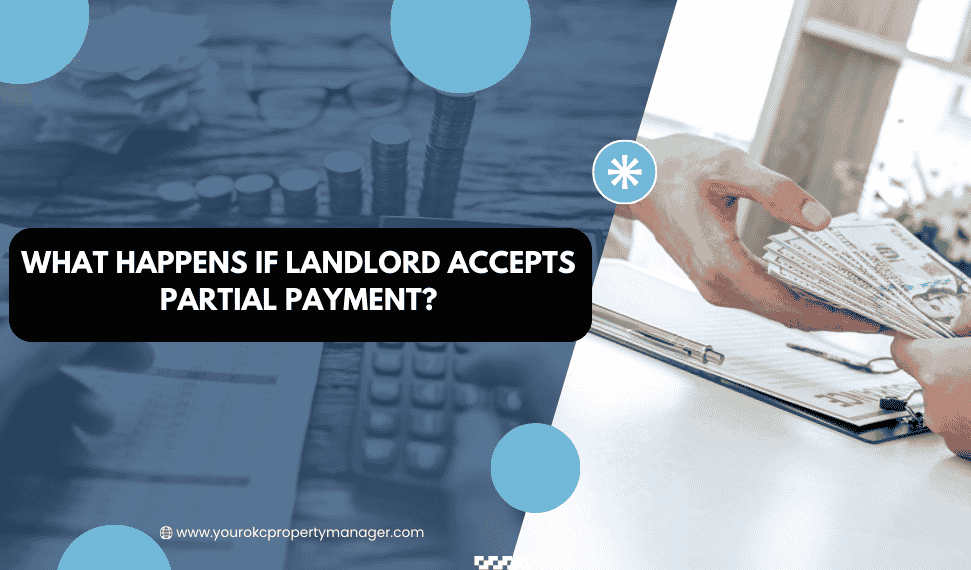Have you ever found yourself in a situation where you can only pay part of your rent? Or perhaps you’re a landlord considering accepting a partial payment from a tenant.
Understanding the implications of partial rent payments can be crucial for both parties. You might wonder, “What happens if a landlord accepts partial payment? ” This question is more than just a matter of dollars and cents; it’s about navigating the complexities of landlord-tenant relationships and legal obligations.
In this blog post, we’ll dive into what accepting a partial rent payment really means for landlords and tenants alike. By the end, you’ll have a clear understanding of the potential benefits, risks, and legal nuances involved. Whether you’re a tenant looking to make ends meet or a landlord considering flexibility in tough times, this guide will arm you with the knowledge you need. Keep reading to ensure you’re making informed decisions that protect your interests and maintain a healthy landlord-tenant relationship.

Legal Implications
Accepting partial payment from a tenant can be risky. It might mean you give up some legal rights. Once you accept less money, it can be hard to demand the full amount later. You may face problems if the tenant pays less next time. This can set a bad example.
Lease agreements often have clear payment rules. These rules say how much rent is due and when. Accepting less money can change these rules. It might confuse tenants about what they owe. Always check your lease agreement. Make sure you understand the terms before accepting less payment.
Financial Considerations
Partial payments can hurt a landlord’s cash flow. Rent money helps pay for bills. Without full rent, some bills might be late. This can cause problems. It can also make planning hard. Landlords need to know how much money will come in each month. Partial payments make this hard to predict. This can cause stress and confusion.
Partial payments can lead to financial losses. Not all money is collected. This can hurt a landlord’s income. Sometimes, repairs or taxes might be unpaid. This can cause problems later. Missed payments can add up. Over time, this means big losses. Landlords might need to find other ways to cover costs. This can be hard and stressful.
Tenant Relations
Accepting partial payment can help build trust. Tenants feel more secure. They know the landlord is understanding. This act shows flexibility and compassion. It can strengthen the landlord-tenant relationship. Tenants appreciate this gesture. It makes them feel valued and respected. Trust is important in any relationship. It helps in creating a harmonious living environment. A positive bond can lead to longer tenancies. Landlords benefit from stable income.
Open communication is key. Landlords and tenants should talk often. Discussing issues prevents misunderstandings. Partial payments can start important conversations. It allows tenants to explain their situation. Landlords can offer solutions or advice. This communication builds understanding and respect. Both parties feel heard. It creates a sense of community. Good communication can solve many problems. It ensures a peaceful living space for everyone.
Short-term Benefits
Accepting partial rent can offer temporary relief in tenant-landlord relationships. It might help tenants avoid eviction and maintain housing stability. Landlords may experience short-term cash flow improvements but should remain aware of potential legal implications.
Immediate Revenue
Receiving partial payment ensures landlords get some money now. This helps with urgent bills. Rent is better than no rent. Some landlords face cash flow problems. A little income eases these issues. It’s hard to wait for full payment. Immediate funds support daily expenses.
Avoiding Vacancies
Vacancies cost landlords a lot. Empty properties bring no income. Accepting partial rent keeps tenants longer. This reduces turnover. Finding new tenants takes time and money. Partial payments keep renters in place. It means fewer empty apartments. Landlords save on advertising costs. Avoiding vacancies benefits everyone.
Long-term Consequences
Accepting a partial payment might set a precedent. Tenants may think it’s okay to pay less. This could lead to frequent late payments. Landlords might find it hard to enforce full payments later. A tenant might feel less pressure to pay on time. This can disrupt the landlord’s finances.
Once a landlord accepts less, tenants might expect it again. They may assume it’s a regular option. This could create payment issues in the future. It can affect how a tenant views their rent obligation. Landlords might face challenges getting back to full payments. It’s crucial to consider this carefully. Ensure clear communication with tenants about payment expectations.

Mitigating Risks
Keep all records when accepting partial payments
Talk openly with your tenant
Professional Advice
Tenants often want to pay part of rent. Landlords should consult legal experts. This helps avoid future issues. Experts explain risks and consequences. A partial payment might mean tenant rights change. Legal advice helps navigate these rules. It’s smart to understand laws before accepting money. This way, landlords make informed decisions. Experts can clarify contract terms. They also help with documentation. Proper records protect landlords.
Accepting part of rent affects financial plans. Budgeting becomes tricky. Landlords must adjust expenses. They might need to cut costs. Partial payments can disrupt cash flow. Planning helps manage resources wisely. It’s crucial to save for unexpected costs. Financial experts offer useful advice. They suggest ways to stay stable. Smart planning keeps finances in check. Landlords should think ahead. Preparing for changes is wise.

Frequently Asked Questions
Can A Landlord Accept Partial Rent Payments?
Yes, a landlord can accept partial rent payments. However, this may impact the lease agreement terms. Accepting partial payments might imply a waiver of the right to demand full payment. It’s crucial to document any agreement made regarding partial payments to avoid legal complications.
What Are The Risks Of Accepting Partial Rent?
Accepting partial rent can lead to legal complexities. It might set a precedent, making it harder to enforce full payment in the future. Landlords risk waiving their rights to terminate the lease for non-payment. Always consult a legal professional before making such decisions.
Does Accepting Partial Payment Affect Eviction?
Yes, accepting partial payment can affect eviction proceedings. It may reset the eviction process timeline. Courts might view acceptance as a waiver of the right to evict for that period. To avoid complications, landlords should document any agreements related to partial payments.
How Should Landlords Document Partial Payments?
Landlords should document partial payments in writing. This includes updating the lease agreement or creating an addendum. Clearly state the amount, due dates, and any conditions. Both parties should sign the document to acknowledge the agreement, reducing potential legal disputes.
Conclusion
Understanding partial payments is crucial for landlords. It impacts rental agreements. Accepting partial payments can lead to misunderstandings. Clarify terms with your tenant beforehand. This helps avoid future disputes. Always document any payment changes clearly. Legal advice may be beneficial.
Protect your rental interests wisely. Being informed keeps you in control. This ensures a smooth landlord-tenant relationship. Clear communication is key. It strengthens trust and avoids conflicts. Staying proactive benefits both parties. Keep these points in mind. They’ll guide you in making sound decisions.


